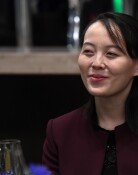How long is enough for this medical crisis?
How long is enough for this medical crisis?
Posted March. 20, 2001 19:17,
The crisis facing the national health insurance system is the outcome of the government`s coercive enforcement of its policy to separate the professional roles of medical doctors and pharmacists. A serious controversy is being raised in the government and the ruling party over the responsibility for the policy failures in the health care system. They are passing the buck to each other. In the face of an imminent financial crunch in the health insurance system, President Kim Dae-Jung declared that he was responsible for the policy failure. But a Cheong Wa Dae official deplored that the president had been haplessly deceived twice. In apparent reference to the health-welfare minister, the official noted that President Kim had received a briefing from the minister, who said that there were no problems with the enforcement of the medical reform policy and that there would be no additional financial burden on the people in the course of implementing the system. The ruling Millennium Democratic Party (MDP) maintained that the party itself had been cheated by the ministry, which forced through the new medicare system in the absence of viable countermeasures to cope with possible additional fiscal requirements.
However, the atmosphere in the health-welfare ministry appears to be somewhat different. Minister Choi Sun-Jung, acknowledging the seriousness of the health insurance question, announced his determination to overcome the looming crisis. Nevertheless, ministry officials were of the view that the implementation of the policy was pushed by the political sphere and not by the ministry itself, raising complaints that now they were going to make the ministry a scapegoat for the mishap. The contention in the ruling camp boils down to the fact that the development and enforcement of the medical reform policies were made in an incoherent and inconsistent manner by the authorities concerned. This is to say that the Ministry of Finance and Economy and the Ministry of Planning and Budget lacked any inter-ministry consultations on the new medical system, a plan requiring a huge amount of the taxpayers` money as well as state subsidies. Seemingly, this is why the government is floundering around while seeking to grapple with the many problems with the new healthcare system.
It is rather natural that the general public is becoming restless. As a matter of fact, the people are distressed by many other things besides the current medicare and health insurance issues. For instance, the people are skeptical about government programs like the opening of the new Incheon International Airport, educational reform policies and the Saemangum reclamation project. With the mishap involving the medical and health problems as the momentum, the government will have to make a comprehensive review of the policy-making process so as to restore public confidence in the government.
It is urgent for the government and the ruling MDP to work out effective measures to prevent the health insurance system from going bankrupt. It seems that the ruling camp is studying such policy steps as hikes in health insurance premiums, additional government subsidies, short-term loans from financial institutions, the collection of health premiums in arrears and structural reform of the National Health Insurance Corporation. Yet, important is the fact that these countermeasures should be provided in accordance with clear-cut principles and in a transparent manner. By doing so, the general public will put confidence in the government policy with a sense of security. This is no time to incriminate one another.



![위고비 복제약이 월 5만원? 비만치료제 대중화 시대 열린다[딥다이브]](https://dimg.donga.com/c/138/175/90/1/wps/NEWS/IMAGE/2026/01/09/133126963.1.png)


![지하철 타고 가는 북한산성…외국인도 반한 ‘K등산 맛집’[전승훈 기자의 아트로드]](https://dimg.donga.com/c/138/175/90/1/wps/NEWS/IMAGE/2026/01/10/133120824.1.jpg)
